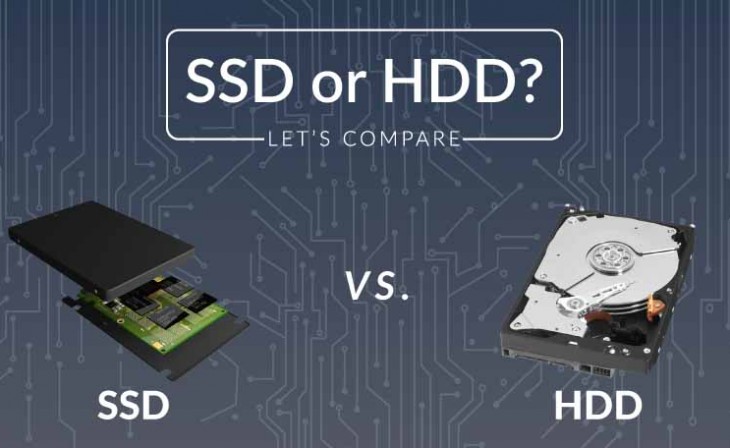Understanding the Difference Between HDD and SSD: Making the Right Choice for Your PC
HDD (Hard Disk Drive)
HDDs have been the traditional storage solution for decades. They consist of spinning magnetic disks, or platters, coated with a magnetic material that stores data. A read/write head moves over the spinning platters to access or modify data. Here are some key aspects to consider when it comes to HDDs:
Capacity and Cost
HDDs generally offer larger storage capacities at a more affordable price per gigabyte compared to SSDs. If you require extensive storage space for your files, documents, multimedia, or games, an HDD can provide a cost-effective solution.
Performance
While HDDs have improved over the years, they still lag behind SSDs in terms of performance. The mechanical nature of HDDs results in slower read and write speeds and longer access times. This can impact the overall responsiveness of your system, particularly when it comes to tasks that involve frequent data retrieval.
Durability and Noise
HDDs are relatively more susceptible to physical damage due to their moving parts. Vibrations, shocks, or accidental drops can potentially affect the performance and integrity of an HDD. Additionally, HDDs generate noise during operation due to the spinning platters and moving read/write heads.
SSD (Solid State Drive)
SSDs have gained significant popularity in recent years due to their impressive performance and reliability. Unlike HDDs, SSDs do not have any moving parts. Instead, they rely on flash memory to store data. Here's what you need to know about SSDs:
Speed and Performance
SSDs offer significantly faster read and write speeds, resulting in improved system responsiveness. This translates to faster boot times, quicker application launches, and reduced file transfer durations. If you prioritize speed and performance in your computing experience, an SSD is the way to go.
Reliability and Durability
As SSDs do not have any moving parts, they are inherently more robust and less prone to physical damage. This makes them highly suitable for portable devices, such as laptops, where durability is crucial. Additionally, SSDs are resistant to shock, vibration, and temperature fluctuations, providing a higher level of reliability for your data.
Capacity and Cost
SSDs typically offer smaller storage capacities compared to HDDs, especially when considering cost. However, as technology advances, the cost per gigabyte of SSD storage continues to decrease. If you require a balance between capacity and cost, you may opt for a hybrid approach by using a smaller SSD for your operating system and frequently accessed applications, and complementing it with an HDD for bulk storage.
Making the Right Choice for Your PC
The decision between an HDD and an SSD depends on your specific needs and preferences. Here are some factors to consider when choosing the storage solution for your PC:
Budget
If budget is a significant concern and you require a large storage capacity, an HDD may be the more cost-effective option for you.
Performance
If you prioritize speed, responsiveness, and faster data access, an SSD is the superior choice. This is particularly important for tasks that involve intensive data processing, such as gaming, video editing, or running resource-demanding applications.
Portability and Durability
If you need a storage solution for a laptop or a portable device, an SSD's durability and resistance to physical damage make it a more reliable option.
Hybrid Solutions
If you need a balance between capacity and performance, consider combining an SSD and an HDD. This allows you to leverage the speed advantages of an SSD for your operating system and frequently accessed files, while utilizing the larger storage capacity of an HDD for less frequently accessed data.
Also Check TP-Link TL-WA1201 AC1200 Wireless Access Point
Conclusion
In conclusion, the choice between an HDD and an SSD depends on your specific requirements and priorities. HDDs offer larger storage capacities at a more affordable price, while SSDs provide superior performance, speed, and durability. Consider your budget, performance needs, portability, and desired storage capacity when making the decision. For users seeking optimal speed and responsiveness, an SSD is the recommended choice. However, for those who prioritize cost-effective storage or require extensive capacity, an HDD may still be a suitable option. Ultimately, the right choice between HDD and SSD will be driven by your unique computing needs and preferences.




